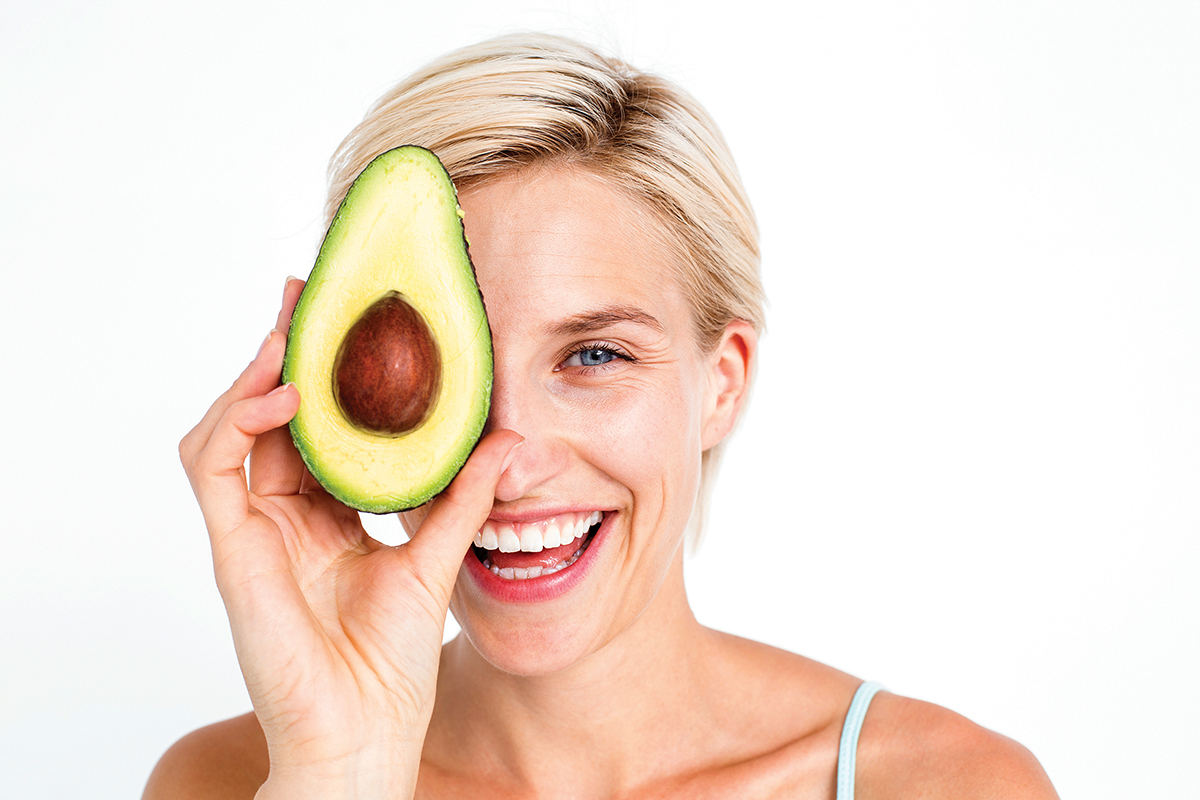A Healthy Diet For Healthy Eyes

We all know that eating a well-balanced diet rich with fruits, vegetables, and whole grains is important for overall good health. But have you ever considered which foods have super powers to help prevent serious eye conditions and preserve good vision for years to come? We grew up learning that carrots are healthy for our eyes – their beta carotene does have a critical role in forming vitamin A and rhodopsin, the visual pigment needed for night vision.
Research is continuing to demonstrate the influence of diet on eye health. And, as it turns out, the list of nutrients needed to keep your vision sharp is much longer than just vitamin A. Other important nutrients include two related carotenoids, lutein and zeaxanthin; vitamins C and E; and two omega-3 fatty acids, docosahexanoic acid (DHA) and eicosapentaenoic acid (EPA). So what are these nutrients and what are their roles?
Carotenoids are plant-based pigments that protect cells by fending off harmful free radicals. Lutein and zeaxanthin are two carotenoids that are densely located in the macula, the central portion of the retina. The retina is the most metabolically active tissue in the body. It has the highest demand for oxygen and has nearly continual exposure to light. This creates high vulnerability to light-initiated oxidative damage. Lutein and zeaxanthin protect the macula from the ravages of oxidative stress and help filter out the short-wave blue light rays that can be damaging to vision. Their role in protecting against age-related macular degeneration (AMD) is of particular interest, as research is suggesting that those with lower levels may be at higher risk of developing AMD and that lutein and zeaxanthin may be protective against its progression. Lutein and zeaxanthin are most abundant in dark green leafy vegetables such as kale, collard greens, turnip greens, and spinach. Broccoli, peas, and avocados are also good sources of this superstar antioxidant combo. If you are curious about your levels, some eye doctors have equipment that can indirectly measure the amounts in your macula. If your levels are low, you can increase your intake of lutein and zeaxanthin-rich foods or you can take supplements.
An estimated 1.8 million Americans have vision loss associated with advanced AMD, while another 7.3 million are at substantial risk. People with advanced AMD have blurred and distorted central vision. They are unable to drive, read, or see details on faces. In addition to lutein and zeaxanthin, nutrients such as vitamins C and E have also been found to be helpful in the fight against AMD. Both vitamins C and E are powerful antioxidants and are important for cellular repair. Oranges, grapefruits, lemons, and berries are high in vitamin C, while foods high in vitamin E include sunflower seeds, al-
monds, spinach, avocados, squash, kiwifruit, trout, shrimp, olive oil, wheat germ oil, and broccoli. There are many supplements for macular degeneration available over the counter. Be sure to ask your eye doctor which supplement, if any at all, is right for you.
The omega-3 fatty acids DHA and EPA have been found to help those suffering from dry eye disease. Chronic dry eye affects an estimated 20.7 million people in the United States. Omega-3s improve the quality of the tears on the ocular surface by way of reducing inflammation in the small oil producing glands in the eyelids, thus improving the quality of the oil layer in the tears. If you suffer from dry eye and wish to consider adding omega-3 supplementation, discuss this with your eye doctor as there is great variation in the quality and dosage of various products. Omega-3s may have many other health benefits including reducing the risk of heart disease, improving cognitive function, and helping to reduce symptoms of rheumatoid arthritis. They are found in some plants and nut oils, but Omega-3s are most abundant in fatty fish such as mackerel, lake trout, herring, sardines, albacore tuna, and wild salmon. If you are allergic to fish or are vegan, consider trying flax seed or black currant seed oil. It is important to have the proper ratio of omega-3 and omega-6 (another fatty acid) in your diet. Omega-3 fatty acids help reduce inflammation, and most omega-6 fatty acids tend to promote inflammation. The typical American diet contains 14 to 25 times more omega-6 fatty acids than omega-3 fatty acids, which experts consider to be excessive on the omega-6 side. The pro-inflammatory omega-6s are found in mayonnaise, processed snacks, fast foods, cookies and cakes, processed pork products, fatty chicken cuts, dairy and eggs, and fatty beef cuts.
Last, but not least, we can’t forget that vitamin A that I mentioned earlier. Along with its crucial role in providing night vision, it is also important in maintaining a healthy ocular surface. Vitamin A is derived from beta carotene, another carotenoid that is a strong antioxidant capable of scavenging potentially harmful free radicals. In addition to carrots, excellent sources of beta-carotene include watercress, pumpkins, winter squash, sweet potatoes, yams, apricots, papayas, and mangoes.
The following recipe is chock full of nutrients that your eyes crave. It’s a quick, easy, and delicious way to give your eyes the antioxidants that they need to continue fending off the oxidative stress that puts them at risk for problems in the future.
Fiesta Kale Bowl
– 1 large bunch kale, cut into thin strips
– 1 can black beans, drained and rinsed
– 1 cup sliced almonds or pumpkin seeds, toasted
– 1 avocado diced
– Chopped cilantro
Dressing:
– 3 tablespoons each of olive oil and fresh lime juice
– 1 teaspoon honey
– ½ teaspoon ground cumin
– ¼ teaspoon ground coriander
– Salt, to taste
Whisk all dressing ingredients together in a small bowl. Put kale and beans in a large bowl and mix together with dressing. Top with nuts, avocado, and cilantro.
Samantha K. McPherson, OD, FAAO
Founder of Dry Eye Center of NC, a subspecialty clinic of McPherson Family Eye Care.

